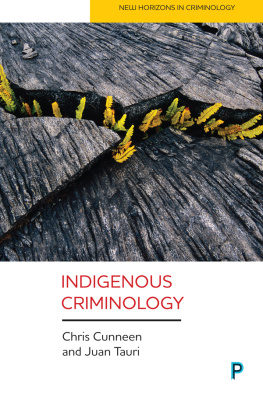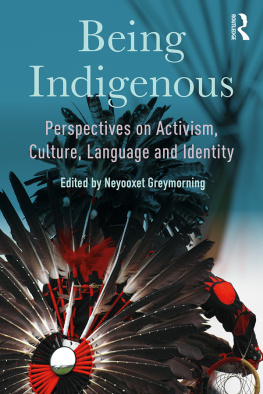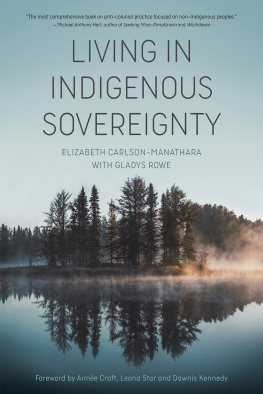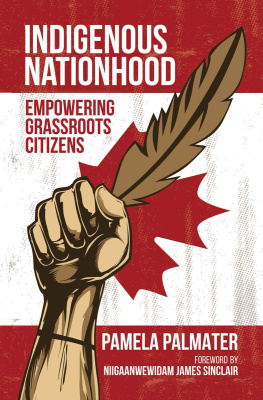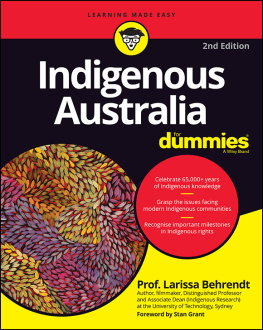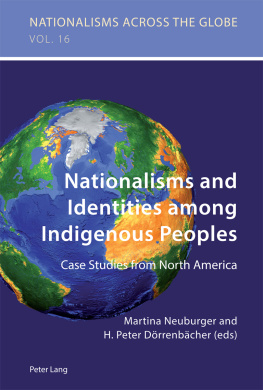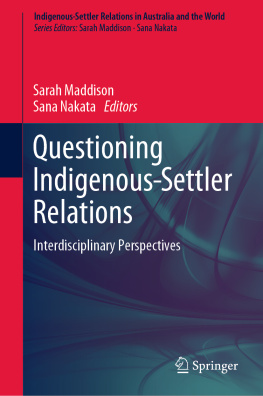Decolonising Indigenous Rights
Routledge Studies in Anthropology
- Student Mobility and Narrative in Europe
The New Strangers
Elizabeth Murphy-Lejeune - The Question of the Gift
Essays across Disciplines
Edited by Mark Osteen - Decolonising Indigenous Rights
Edited by Adolfo de Oliveira
Decolonising Indigenous Rights
Edited by Adolfo de Oliveira

First published 2009
by Routledge
270 Madison Ave, New York, NY 10016
Simultaneously published in the UK
by Routledge
2 Park Square, Milton Park, Abingdon, Oxon OX14 4RN
This edition published in the Taylor & Francis e-Library, 2008.
To purchase your own copy of this or any of Taylor & Francis or Routledges collection of thousands of eBooks please go to www.eBookstore.tandf.co.uk.
Routledge is an imprint of the Taylor & Francis Group, an informa business
2009 selection and editorial matter the editor; individual chapters the contributors
All rights reserved. No part of this book may be reprinted or reproduced or utilised in any form or by any electronic, mechanical, or other means, now known or hereafter invented, including photocopying and recording, or in any information storage or retrieval system, without permission in writing from the publishers.
Trademark Notice: Product or corporate names may be trademarks or registered trademarks, and are used only for identification and explanation without intent to infringe.
Library of Congress Cataloging in Publication Data
Decolonising indigenous rights / edited by Adolfo de Oliveira.
p. cm.(Routledge studies in anthropology ; 3)
Includes bibliographical references and index.
ISBN 978-0-415-33950-6
1. Indigenous peoplesLand tenure. 2. Indigenous peoples Civil rights. 3. Indigenous peoplesLegal status, laws, etc. 4. Self-determination, National. I. Oliveira, Adolfo de, 1964
GN380.D43 2008
305.8dc22
2008000582
ISBN 0-203-44920-7 Master e-book ISBN
ISBN10: 0-415-33950-2 (hbk)
ISBN10: 0-203-44920-7 (ebk)
ISBN13: 978-0-415-33950-6 (hbk)
ISBN13: 978-0-203-44920-2 (ebk)
This book is dedicated to the memory of my father, Adolfo de Oliveira, Sr., attorney (19332005)
Acknowledgments
This volume grew out of the Virtual Seminar on Indigenous and Minority Rights (September 1998), organised by the Centre for Indigenous American Studies and Exchange (CIASE) of the University of St. Andrews, UK, and by the Study Group for Inter-Ethnic Relations (GERI) of the University of Brasilia, Brazil. I am grateful to all those that helped in its making, particularly to Helder Ferreira de Sousa, from the University of Brasilia, who did the first desktop editing, Alan Passes and Yoko Nitahara for the revision, and to Marlene Atleo, Peter dErrico and James Weiner, for the support in the realisation of the seminar. I am grateful also to the Brazilian National Research Council (CNPq) and to the Wenner-Gren Foundation for Anthropological Research, whose grants I received while working on this volume.
Adolfo de Oliveira
Introduction
Decolonising Approaches to Indigenous Rights
Adolfo de Oliveira
THE SUBJECTS REBELLION
March 16, 1997. It was a hot summer afternoon when a crowd gathered in front of a building of unconspicuous appearance in Carpina, Pernambuco, in the Brazilian Northeast region. Indians from Northeast Brazil and the Eastern states of Minas Gerais and Espirito Santo, regions that were among the first to be invaded by the Portuguese in the 16th century, made up the group. Indigenous societies have been subject to a centuries-long process of sociocultural blurring and integration with the colonial (and later national) society. One could not tell the difference, in terms of appearance, between any of those Indians present and the local non-Indiansexcept for the display of occasional feathers, in adornments dutifully copied from Amazonian models.
Northeastern and Eastern Indian peoples were exposed to the European invasion from its outset. They were deprived of their languages and customs by the imposition of religious administrators (and later lay ones) for the narrow strips of land that the Portuguese Crown granted to them. They were forced to adopt a European language, European attire and a European economy. in the region have asserted themselves as rightfullyand lawfullyentitled to Indian Lands and special rights as Indians.
Within the building the president of FUNAI were invited to attend the meeting. They refused. Now, the Indians were demanding full participation in the event. Between them and access to the workshop there was a short wall, one and a half metres high, two Federal Police agents in charge of the security of FUNAIs president, and the unwillingness of the Indian agencyin the pathetic figure of a thin, short officer with arms akimboto accept the Indians participation in the event.
And now a tense altercation takes place under the sun between Indians and Indian agency officers at the entrance to the building, the point of physical convergence of all these elements. In the reigning antiphony, demands of access and peremptory refusals mingle with reasonings on the improprietyand material impossibilityof trying to hinder access to the Indians. The latter, more pragmatically, illustrated the aforementioned impossibility by transposing, in a single chaotic movement, the short wall between them and the refreshing shadows beside the building. The first Indian to jump over the wall, a woman, re-enacted (probably inadvertently and maybe unconsciously) a famous passage of Brazilian national history attributed to the Duke of Caxias, a national hero: Im going to jump over, and those among you who are truly Indians shall come with me! In a few seconds the patio is taken over by a humorous mob trying to find shelter from the glaring afternoon sunalso taking over, in their own way, the space of the (official) discussion of indigenist policy in Northeast Brazil.
A general feeling of embarrassment gripped both anthropologists and indigenists, then (almost) all barricaded inside the main auditorium, whose door was locked from the inside by the FUNAI presidents Federal Police escorts. A few participants tried to articulate justifications for their presence within the improvised citadel. Others glanced nervously at the windows, where the Indians, visibly appreciating the comic side of the situation, pressed their faces and hands over the entire transparent surface, trying to get a glimpse of whatever was going on inside. Not only the windows but also the whole front of the building were full of curious Indianseven some childrenwho were also scattered along the gardens, refectory and other rooms of the building, so suddenly emptied of their official occupants.
The FUNAI workshop was initially proposed as the first of two conjugated events, intended to appraise indigenist policy for the region and elaborate new directives for Indian public policy. The purported aim was a discussion of the official indigenist practicedefined according to an idealised Amazonian modeland its adaptation to local reality. In the first instance, the discussion would centre on the Indian agency itself, its own identity relative to the new fin-de-millnaire Indian reality. The idea behind this was to define first and foremost the place of the Indian agency within the field of indigenism: the agency has been suffering from an identity crisis caused by the very presence of indigenous politics on the contemporary stage. This was a task that could not be undertaken in the presence of the Indians, the very agents of the crisis, the organisers argued. A second instance would follow: the outlining of a new policy for Indian peoples would be the object of another meeting, this time centred around Indigenous peoples and organisations and their claims.


